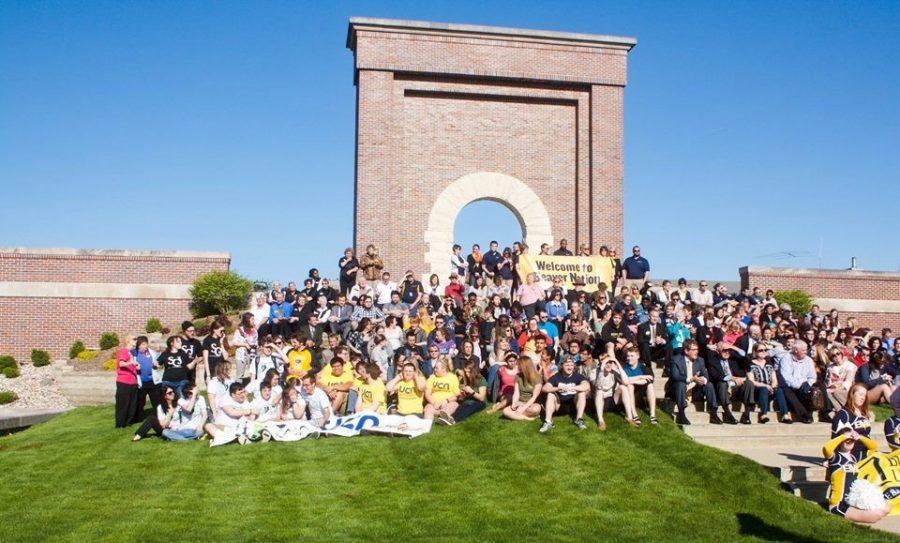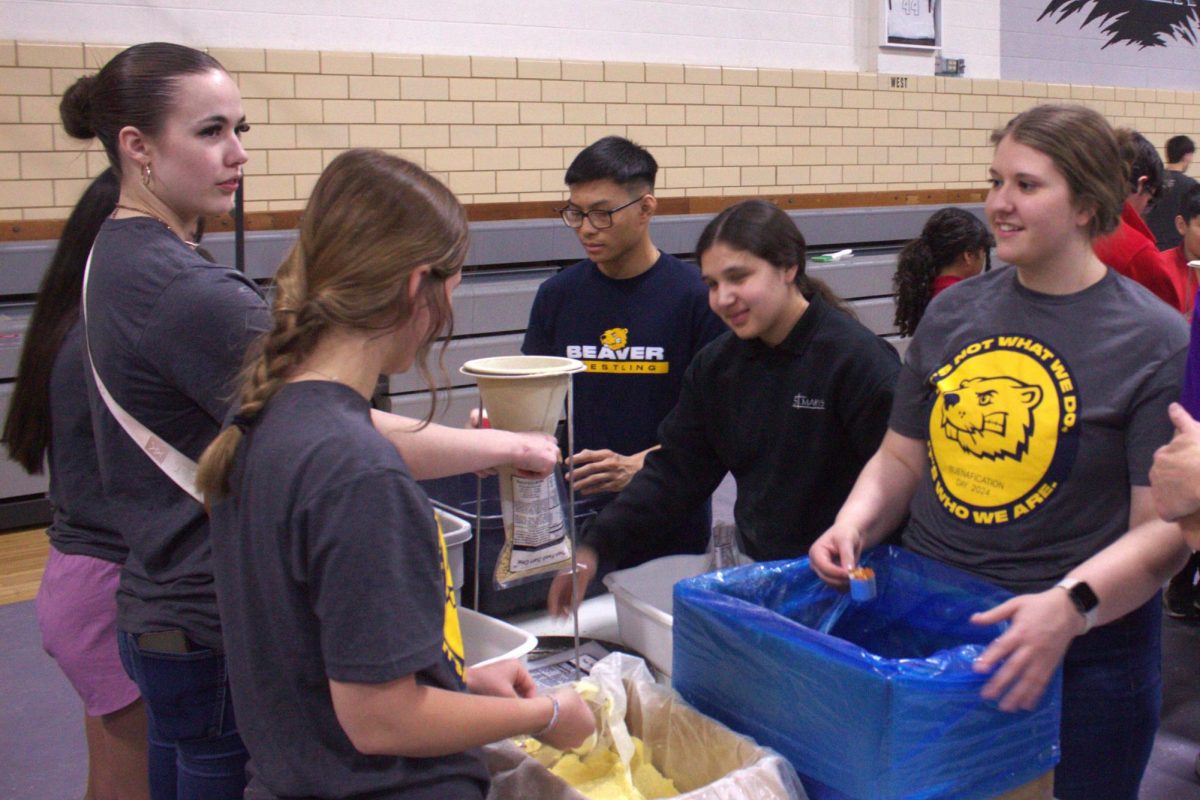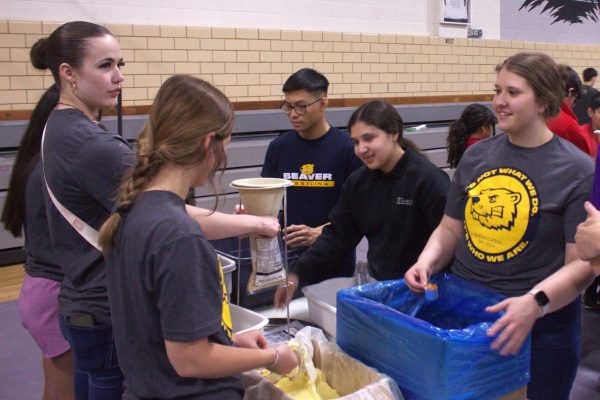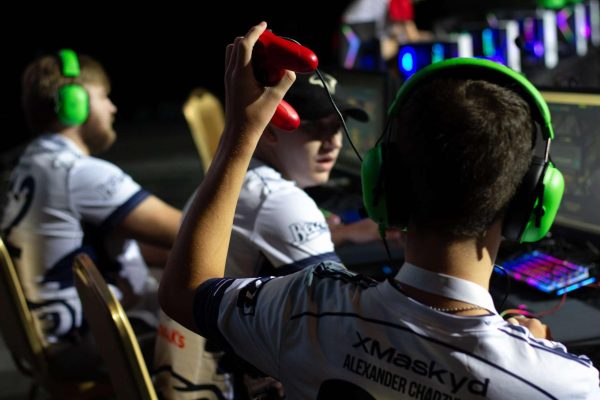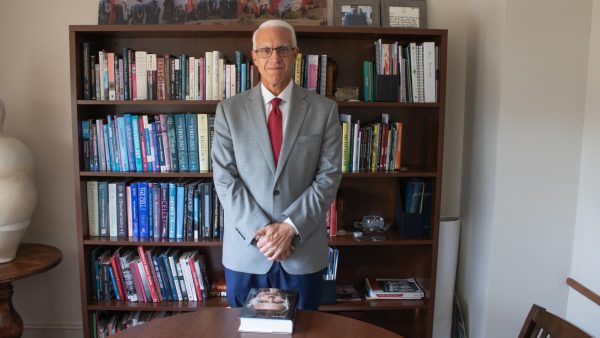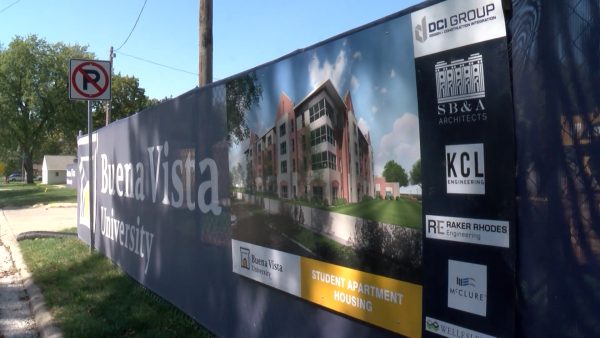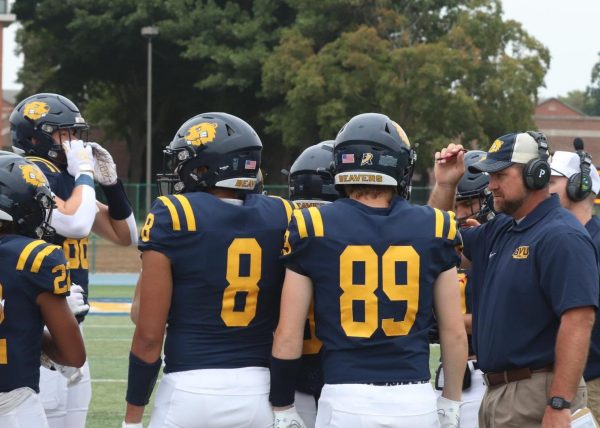Administrators focus on retention
December 8, 2017
Small, private colleges across the state seem to be facing declining admission and retention numbers over recent years, and Buena Vista University (BVU) is no stranger to the problem. However, according to Mark Shea, Assistant Dean of Students and Director of Student Success, the 2016-2017 academic year was actually one of the best years BVU has had in several years in terms of retention rates. This year, however, the university is trailing by five percent for fall-to-spring retention so far.
Shea says he’s not nervous about the decrease though given it was one of the best years to be up against in comparison. However, he would still like to be ahead instead of behind.
According to Shea, when compared to other “like” colleges and universities in terms of size, average GPA, average ACT, etc., BVU often outperforms those institutions in certain retention categories, and nearly always stays at least right in the ballpark of averages.
Shea says the biggest factors that affect retention at BVU are a student’s high school GPA and ACT score as well as their first semester GPA in college. Students who don’t do well academically tend to be ones who are more at-risk.
Other factors like distance from home can affect retention rates as well. This year has been the first year with so many of the applicants and admits in the freshman class coming from out of state.
“I think it was about 46% of the freshman class was from out of state, and of that 46%, over 50% were from non-contiguous states,” said Mike Frantz, Vice President of Enrollment. “So that was certainly a concerning factor on the topic of retention.”
However, Frantz shared that if students are academically qualified to enter the institution, he won’t deny them just because they live in California or New York or in a state further away.
Shea noted that another couple of major criteria that can affect retention in both a positive and negative way are engagement and relationships on campus. Students who engage, become part of the campus atmosphere, who get involved in activities and organizations, and even just make friends, are the ones who are more likely to stay.
“I think the biggest thing is relationships and what we can do to help those students build good relationships on campus with faculty, with staff, with other students,” says Shea. “I think the more students are engaged and having a good experience, the more likely they are to stay and get their degree here. And realize that the BV education is worth it.”
Frantz finds it important for students who are having a good experience to share that and help encourage others to have positive experiences on campus too.
“We love to see BV students who are having great experiences talking about that, encouraging others, asking them to join in, asking them to be a part of their great experience,” says Frantz. “Because then you build a real positive environment that leads to higher retention.”
Currently, Shea has found in his exit interviews with students who are leaving at semester, that a lot of them are putting the size of Storm Lake down as a factor. It’s only roughly 10% to 20% of their reasoning, but it’s something that Shea feels needs looked at.
“I think we’re having more students from a greater distance who are maybe from cities who aren’t used to this,” says Shea. “How do we help these students engage and see that there’s still things to do here? And it’s not so much about the town you’re in, but getting engaged in the campus that you’re on.”
BVU hosted a retention summit in October, bringing different people from campus to look at four main factors that go into retention. They tried to come up with different things they could do based on those factors. One factor was students from a greater distance from home. BVU usually looks at 250 miles or more for that because data shows there’s a definite break in retention from students who are within and outside of 250 miles. Other factors were students who are involved in athletics, students of diversity, and academic preparedness. BVU then created a committee to follow up on some of the ideas and put some of those actions in place.
Right now, Shea says BVU’s goal is to be between 75% and 80% retention for first year students from fall-to-fall.



